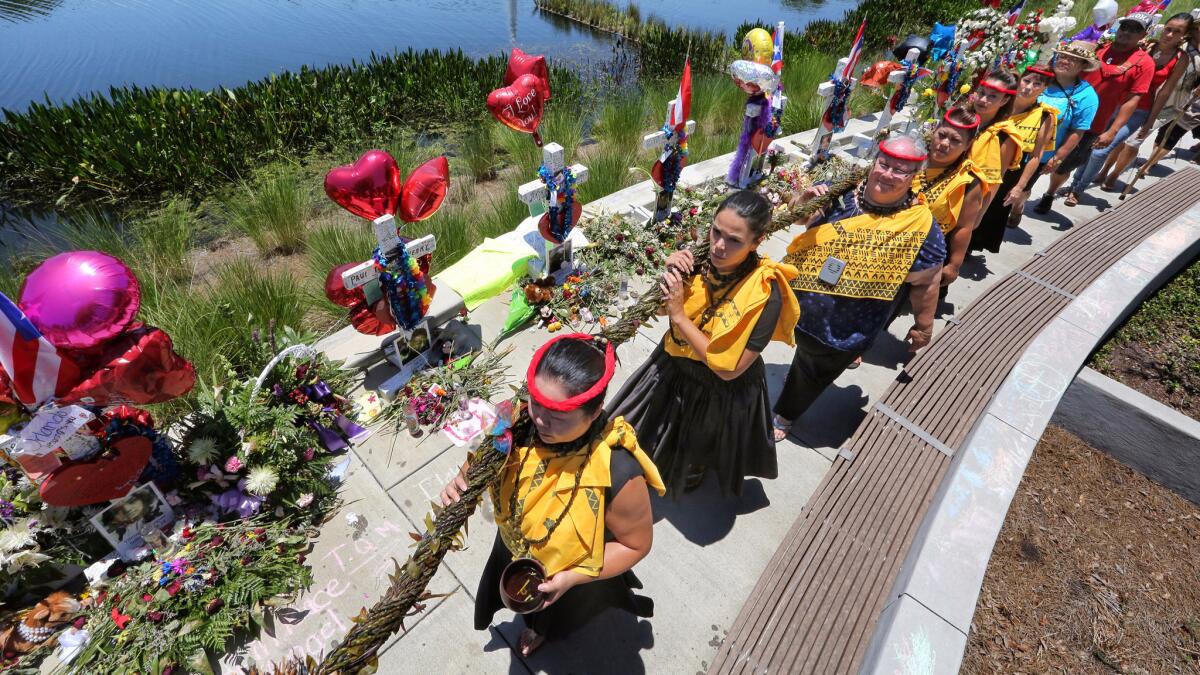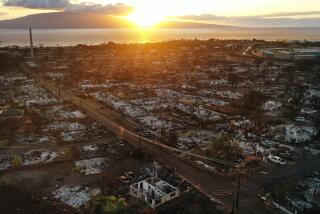Charities for Orlando victims have raised $15 million, but many lack direction and accountability

In the two weeks since the massacre at Pulse nightclub, more than $15 million in donations have poured into nearly 450 charitable campaigns related to the tragedy, many of them individual efforts that have been hastily created and with little to no accountability.
Even the largest fund — OneOrlando, established by the city of Orlando and now run by Orlando Magic Chief Executive Alex Martins — has not yet appointed a board of directors, nor has it begun to figure out how the money will be spent.
Despite that, Orlando Mayor Buddy Dyer has promised that disbursements from that $9.5-million account would begin within about two months.
“We have not been able to formulate the criteria [for distributing the money] because our event is different than Boston, it is different than New York, so it’s not a cookie-cutter that we can go pick off the shelf and say, ‘OK, this is exactly how we’re going to do it,’” Dyer said.
The city stumbled early, at first saying that none of the money would go directly to victims but rather to programs that would benefit them and address underlying causes of the violence. But after a damning statement by victims of attacks in other states, leaders changed course, announcing all the money would go to victims.
The discord isn’t unusual. In the aftermath of modern tragedies, from Sept. 11 to Virginia Tech to Sandy Hook, big money always seems to bring trouble along with relief. Nearly a year and a half after the 2012 shootings at Sandy Hook Elementary School in Newtown, Conn., which killed 20 children and six adults, almost half of the $28 million raised sat unused.
“This has happened for about 20 years now after these mass killings … where victims are basically on their knees in grief and they’re told: ‘This money isn’t for you,’” said Anita Busch, whose 23-year-old cousin was killed in the Aurora, Colo., movie theater shooting four years ago. “Even the best-intentioned people really have no idea how to handle this.”
But patience, some say, has many virtues — not the least of which is to help protect against fraud.
“Everyone wants the money to go out tomorrow, but historically that’s when the mistakes have been make,” said Sandra Miniutti, chief financial officer for the national watchdog group Charity Navigator. “A lot of what we’re seeing in Orlando is sadly what we’ve seen in Connecticut and Boston and Colorado, where, because the technology to create fundraising campaigns is so accessible, you get this large number of funds.”
In Orlando, the bulk of the campaigns after the shooting have sprouted on the online fundraising platform GoFundMe.com. In fact, by 11 a.m. on June 12, just hours after the massacre, Equality Florida had set up its Support Victims of Pulse fund there, hoping to raise $100,000. It has now collected more than $6 million from 114,000 donors in 120 countries.
“GoFundMe was built so there would be a platform for a campaign that could be set up quickly and spread around the world. And that’s what happened,” said GoFundMe spokesman Bobby Whithorne. “Just a few hours after the shooting, Equality Florida had launched the account, which was then shared by the Human Rights Campaign.”
See more of our top stories on Facebook »
It’s now the largest and fastest-growing campaign in the platform’s six-year history — and it’s also one of the most transparent. Equality Florida, the state’s largest LGBT civil rights group, has released updates every few days, detailing what’s happening and why. It has also pushed to expedite payments to victims, saying checks will go out in another six weeks instead of the usual six months.
But GoFundMe also hosts hundreds of smaller campaigns tied to the shootings, created to help individual victims, including those in the hospital, to pay immediate expenses of rent, utilities and medical bills. Some are for families of the dead to cover funeral arrangements.
Whithorne said his company is working “around the clock” to vet all the campaigns to weed out fraud. So far, it has suspended two funds.
While expenses can continue for years, many victims need money now. To help them, the city established a Family Assistance Center that brought in companies and charities providing rent and utility aid and gift cards for food. Meanwhile, Catholic Charities of Central Florida had set up a temporary office just to address the immediate need of Pulse victims and their families.
And already, the state of Florida’s Victim Compensation Fund has paid out more than $70,000 in shooting-related claims.
Santich writes for the Orlando Sentinel.
ALSO
Boy, 6, killed when refrigerator falls on him
3 killed when boat capsizes off Catalina Island
150 homes destroyed in deadly Kern County wildfire, with tough weekend ahead
More to Read
Start your day right
Sign up for Essential California for news, features and recommendations from the L.A. Times and beyond in your inbox six days a week.
You may occasionally receive promotional content from the Los Angeles Times.






